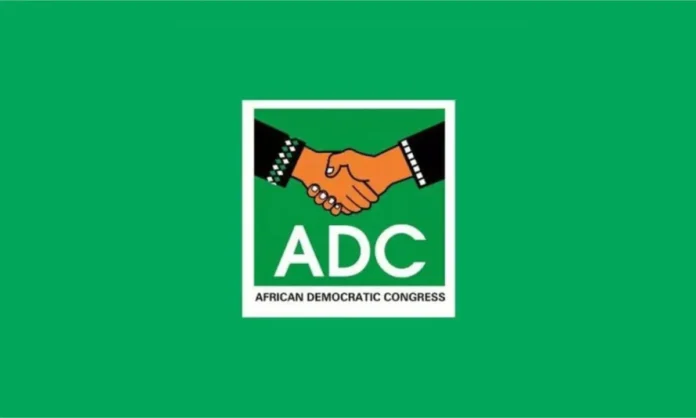By Olayinka Olatunbosun, PhD
In a bold and historic political move, a coalition of opposition parties and reform-driven individuals have officially adopted the African Democratic Congress (ADC) as their united platform for the 2027 general elections. This unprecedented alliance is already changing the landscape of Nigerian politics and raising a vital question: Is ADC truly the solution to Nigeria’s long-standing problems?
For decades, Nigeria’s political space has been dominated by two major parties – APC and PDP – both of which have come under intense scrutiny for failing to deliver transformative governance. As economic hardship deepens, insecurity persists, and trust in government institutions erodes, citizens and organized interest groups have grown restless for real change.
This has culminated in the formation of a broad-based coalition, made up of prominent politicians who are former members of the dominant parties. Their collective decision to adopt the ADC as a platform is both strategic and symbolic – it reflects a shared desire to break away from politics-as-usual and chart a new course for Nigeria.
Why ADC?
The African Democratic Congress (ADC), formed in 2005, has long projected itself as a progressive, people-oriented, and ethically driven alternative. The party’s values—centered on good governance, inclusiveness, transparency, innovation, and accountability—resonate deeply with the aspirations of the new coalition.
Unlike other parties that are driven by personality cults and ethnic loyalties, ADC promotes issue-based politics and internal democracy. It is these values that attracted the coalition, which views ADC not just as a party, but as a platform for national rebirth.
What This Means for Nigeria
The adoption of ADC by the opposition coalition has several far-reaching implications:
For the first time in recent history, disparate political and civil forces are coalescing around a single platform, increasing the chances of dislodging entrenched powers through a united front.
With the backing of seasoned politicians, credible technocrats, and grassroots movements, the ADC now has the capacity to build stronger structures nationwide.
The ADC’s existing frameworks for youth and women’s participation align with the coalition’s emphasis on inclusive governance.
The platform is poised to present fresh, people-centered policy alternatives on education, security, economy, health, and job creation – grounded in realism and guided by expertise.
Still, Challenges Remain
While the momentum is promising, significant hurdles lie ahead:
The coalition must ensure that ADC’s structures are solidified at the ward, local government, and state levels in all six geopolitical zones.
The entrenched interests in the current power structure will not yield easily. The coalition must prepare for intimidation, misinformation, and possibly even legal or institutional hurdles.
Running a national campaign requires robust financing and a highly disciplined strategy, especially in rural and underserved communities.
Nigerians have been promised “change” too many times. The coalition must go beyond rhetoric and show that it is different – through action, transparency, and genuine engagement with the electorate.
The Road to 2027
If managed effectively, the ADC-led coalition could redefine Nigeria’s democratic future. The strength of this movement lies in its diversity and unity of vision. By combining experience with youthful energy, grassroots mobilization with strategic communication, and ethical politics with visionary leadership, the coalition stands a real chance of capturing the imagination – and votes – of millions of Nigerians hungry for change.
But the real test will not just be at the polls; it will be in governance – proving that they can deliver where others have failed.
Final Thoughts
The African Democratic Congress, now powered by a coalition of opposition forces, represents a bold experiment in Nigeria’s political evolution. It is a chance—perhaps the last, in the eyes of some—to rescue the nation from deepening decay and restore hope to its people.
Whether ADC becomes the solution to Nigeria’s problems will depend not only on the strength of its vision, but on its ability to inspire, mobilize, and govern with integrity. What is clear, however, is that Nigerians are ready for something different—and perhaps, just perhaps, ADC might be that difference.
Dr. Olatunbosun was the Labour Party candidate in Ife East Local Government for the Osun State House of Assembly election in 2023.

